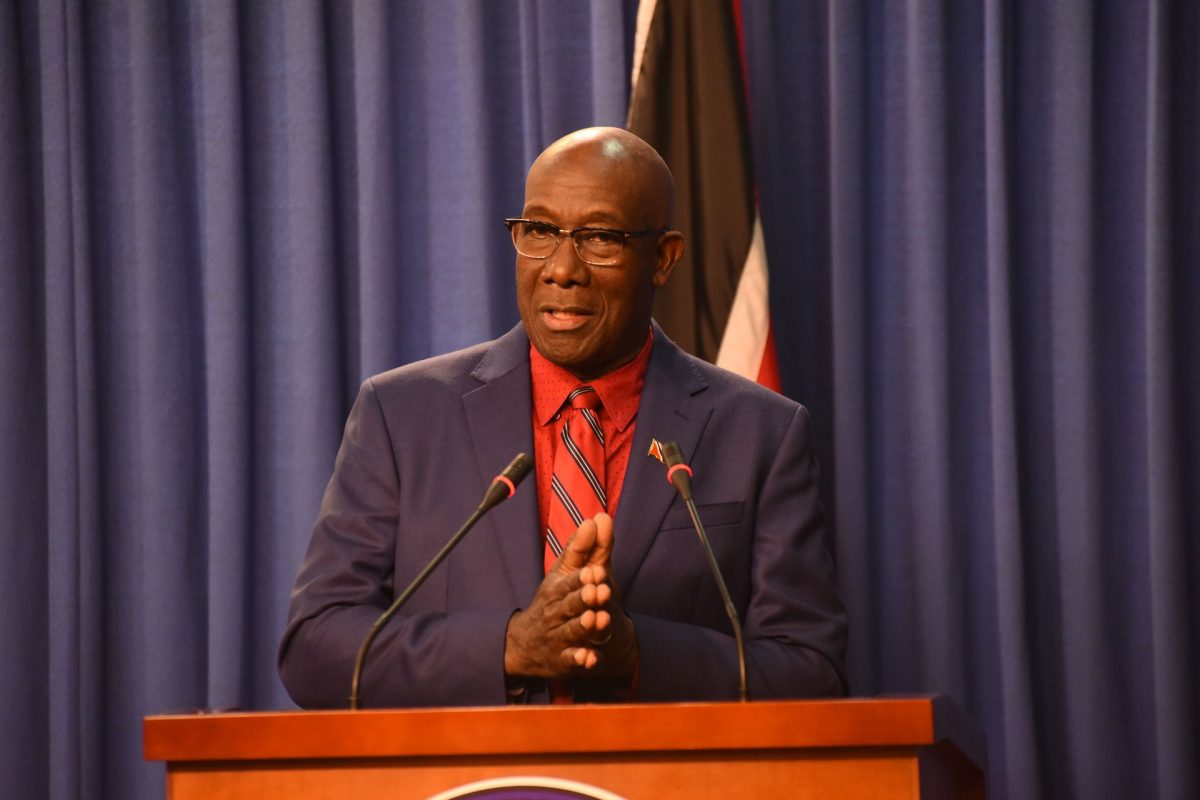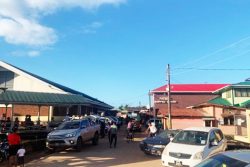PORT OF SPAIN, (Reuters) – Trinidad and Tobago would pay Venezuela for natural gas produced at an offshore development with humanitarian supplies like food and medicine, Prime Minister Keith Rowley said, to comply with a U.S. license prohibiting cash payments to the government of President Nicolas Maduro.
The U.S. Treasury Department yesterday issued a license allowing Trinidad to co-develop the Dragon gas field, which holds 4.2 trillion cubic feet of reserves on the Venezuelan side of the maritime border with Trinidad. The project would have Trinidad import the gas and turn it into exportable liquefied natural gas (LNG).
“We have done that before. So we buy the gas and we pay for it in a variety of ways,” Rowley told journalists late yesterday. Trinidad previously supplied Venezuela with about $50 million in humanitarian goods, he said.
Venezuela has resorted to swaps to make its economy work amid stiff U.S. sanctions prohibiting financial transactions or the use of dollars to pay Venezuela or the country’s state companies.
Maduro has been pressing Washington and other governments to free over $3 billion frozen in foreign bank accounts – money which could be used to import food, medicine and other goods.
The United Nations has been called to administrate a fund that would be financed with those resources, but there has been no agreement between Maduro, the United States and the country’s political opposition on how to implement it. The opposition controls most of the country’s foreign assets.
NEW OPERATOR
Venezuela’s state oil company PDVSA owns and operated the Dragon gas project when it was last active about a decade ago. A new operator would have to be appointed to bring new investment, said Latin American energy expert Francisco Monaldi.
“From the perspective of opportunities, PDVSA does not have better options at this time to sell that gas under sanctions,” even if it means relinquishing operations, he said.
Shell SHEL.L, which operates the neighbouring Hibiscus field in Trinidad, ideally could become the operator, said Trinidad’s Rowley.
Trinidad and Venezuela would have to decide on how to compensate PDVSA for past exploration and infrastructure, said Monaldi, a director at the Center for Energy Studies at Rice University’s Baker Institute for Public Policy.
PDVSA did not reply to a request for comment. Shell declined to comment.









